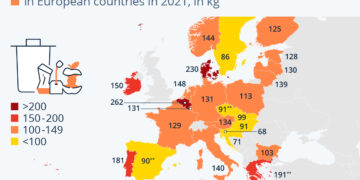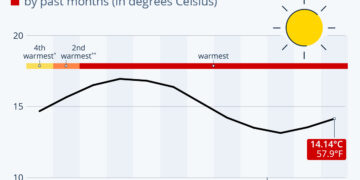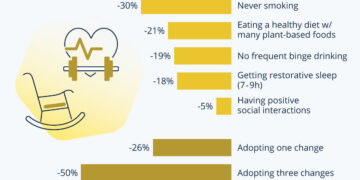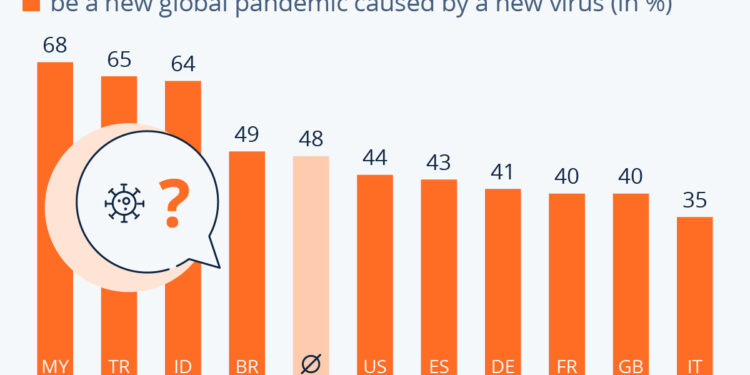Exactly four years ago today, the World Health Organization declared Covid-19 a pandemic. Over 7 million people are reported to have died from the disease as of February 25, 2024, according to the organization’s official figures. However, reported figures are usually an underestimate, meaning that the death toll is likely even higher, especially when taking into account factors such as deaths not attributed to Covid if the person did not test and deaths caused indirectly by overwhelmed health systems.
The following chart looks at public perceptions on the chances of a new pandemic emerging as a result of a new virus. Taken by Ipsos between October 30 and November 3, the survey revealed that respondents living in Malaysia, Turkey and Indonesia were among those particularly likely to say that there will be another global pandemic. By contrast, respondents in several European countries were less likely to agree with the statement, with only around four in ten in Germany, France and the UK saying it was likely. Across the 34 countries polled, an average of 48 percent said that they expected there to be another global pandemic.
In order to improve levels of preparedness, governments and scientific bodies around the world are now expanding areas of research into a wider range of viral families, with the understanding that while it’s known another disease is likely to emerge, it’s unknown what that disease will look like. Scientists call this anticipated hypothetical disease, ‘Disease X’ – a term coined by the WHO in 2018 to describe an unknown pathogen that could emerge with an epidemic or pandemic potential.




















![Antimicrobial Resistance [AMR] in Hausa](https://healthtoday.com.ng/wp-content/uploads/2024/02/antimicrobial-resistance-AMR--360x180.jpeg)




























